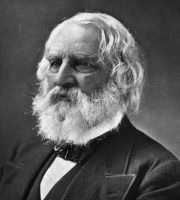
ABOUT THE POET ~
S.Murali started writing at a very young age, drawing suitable inspiration from his ardent enthusiasm for natural history, especially ornithology, and his exceptional talent for sketching and painting. His early poems are replete with imagery of nature: animals and birds, mountains and forests, the sea and the sky, all find their place in his work alongside the human. He loves to travel and sketch people and places. His earliest significant poem – Night Heron--appeared in Chandrabhaga, and the poet Jayanta Mahapatra noted it mainly for its singular appeal and original voice. Another longer poem Ganga also found a place in Chandrabhaga in the early eighties. From then onwards Murali’s poems have appeared in many reputed journals and periodicals. Whatever his other preoccupations he has been writing poetry fairly regularly., In her full length review of these poems (World Literature in Review) Syamala Narayan writes: “His first book of verse, Night Heron (1998) had some drawings. Conversations with Children (2005) his second collection, had no illustrations but was distinguished by poems featuring characters from the Mahabharata like Ekalavya, Amba, Karna, and Krishna. Earth Signs is profusely illustrated, with the poet’s line drawings adorning almost every page. The collection reveals the naturalist in Murali; it also contains three poems written in Gotha, Germany in 1998.”, K Satchidanandan writes in the Introduction to The East Facing Shop: “Murali Sivaramakrishnan is not the kind of poet who assails the reader with shocking images challenges her to interpret his ambiguous lexical and semantic games or indulges in pure fantasy at the cost of intelligent reflection on man’s being on earth. His poems are meditations on the states of existence, not only of human beings whose hubris makes him imagine himself as the focal point of the universe and the acme of God’s creation, but of the whole created world where objects, plants and animals are by no means casual and peripheral to an anthropocentric universe, but are organic parts of a wholesome design. The poems in The East Facing Shop are spiritual without being dogmatic, tender without being sentimental, philosophical without being pedantic, communicative without being loud and well-crafted without being clever.”, POETRY volumes, Night Heron: Poems and Sketches [Calcutta: The Writers Workshop, 1998], Conversations with Children (Pondicherry: Puducherry Writers’ Cooperative Society, 2005), Earth Signs (Pondicherry: The Creative People, 2006), The East Facing Shop and Other Poems (Kolkata: Monfakira, 2010), Selected Poems Delhi: Authorspress, 2014





